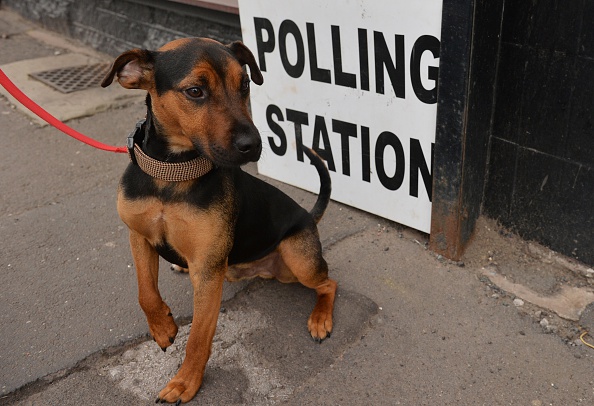December may not turn out to be the Brexit election after all

I was 14 when I voted in my first election.
Not for real, of course, but in a school-wide mock poll to get us all engaged with politics back in 2005.
Sixth-form students assumed the role of candidates (one for each party) and published simplified manifestos based on what the national parties had put forward.
I don’t remember who won, but I know exactly who came a very close second because it was a shock: the Green Party. I’d love to say that it was because we were as environmentally activated as today’s climate-striking school students, but it wasn’t – back then, the environment was still a fringe issue, with the economy and the Iraq War taking centre-stage.
Even if it had been a hot topic, the Green candidate made no effort to explain climate change to us or make the case for recycling or renewable energy. Instead, she baked hundreds of cupcakes, covered them in bright green icing, and offered them to anyone who pledged to vote for her. She won far more votes than anyone expected, including mine.
And thus I learnt my first political lesson: elections may be fought on policies, but they are won on bribery – the simpler the better.
Britain is once again facing an election. Depending on the length of extension to Article 50 offered by the EU and the consent of MPs, the Prime Minister has called for the country to go to the polls on 12 December.
Merry Christmas, UK voters.
The received wisdom is that this election will be all about Brexit. “Get Brexit done” was, after all, the slogan repeated ad nauseum at the Conservative party conference.
Boris Johnson’s de facto chief of staff Dominic Cummings has certainly been itching to go ahead with his message of “parliament versus the people” since he joined the Downing Street team. He has painted the Prime Minister as the Brexit champion seeking a new mandate from the public in the face of obstruction from a recalcitrant establishment.
It’s a narrative that has renewed resonance after MPs voted tentatively in favour of the hard-won Brexit deal in principle, but then scuppered any attempt to pass it in time to meet the Article 50 deadline.
Labour’s Brexit policy is less catchy (renegotiate a deal, hold a referendum on it, remain ambiguous about which side the party would campaign for), but it’s looking like the core message from Jeremy Corbyn and his team will be that Boris can’t be trusted, on Brexit or anything else.
As ammunition, they have the Supreme Court ruling that the government’s prorogation of parliament was unlawful (much as Boris may have hoped for public anger against the judges, polls show that the majority of people were on the side of the Court – and the Queen), as well as the fact that the Prime Minister went back on his infamous promise that he’d rather be “dead in a ditch” than extend the Brexit process.
While the Conservatives are hoping that the public will blame MPs rather than the government for this forced backtrack, Labour will hammer home that a broken promise is still a broken promise.
Everyone, then, is making a similar offer to the electorate: vote for us, and we will sort this Brexit mess out better than the other guys.
And that might be an appealing offer, if anyone actually believed it. But while people may be suffering from intense Brexit-fatigue, they are not deluded into thinking that there is any hope of it ending anytime soon, as new research from Deltapoll showed this week.
The vast majority of the public (78 per cent), do not expect the Brexit issue to be “finished” by the end of this year, over half (57 per cent) do not think it will be sorted by the end of 2020 either, and 31 per cent doubt it will ever be over at all.
Such fatalism means that politicians’ laser-like focus on this one issue is likely to be misplaced. Indeed, the Deltapoll figures also show that fewer than one in three voters see Brexit as the most important issue to them personally.
This may be why we have suddenly seen rushed-through spending splurge pledges (many of them fudged or uncosted), from the Conservatives’ 40 new hospitals and 20,000 police recruits, to Labour’s £250bn public investment plan and renationalisation bonanza, not to mention gimmicks like interest-free loans for electric cars.
And yet, so far these have come a distant second to the promise to make Brexit go away.
It is the Brexit infighting in parliament that has dominated the news cycle for the past three months. But while there is undoubtedly public anger on both sides of the Brexit divide about how this has been handled, there is also anger about everything else that has been put on hold while this interminable battle over what is essentially a trade arrangement rages on.
I have been wrong about most of the predictions I have ever made, but I am willing to venture that this may not turn out to be a Brexit election at all. There is simply no such thing as a winning Brexit position, not even “getting it done”.
Rather, the prize has as much chance of going to whoever talks most convincingly about something – anything – else and comes up with a small but simple bribe that exhausted voters who are fed up with three years of inaction can believe might actually happen.
Think less on the scale of grand national industrial strategies or visions of global Britain – and more free cupcakes.
Main image credit: Getty